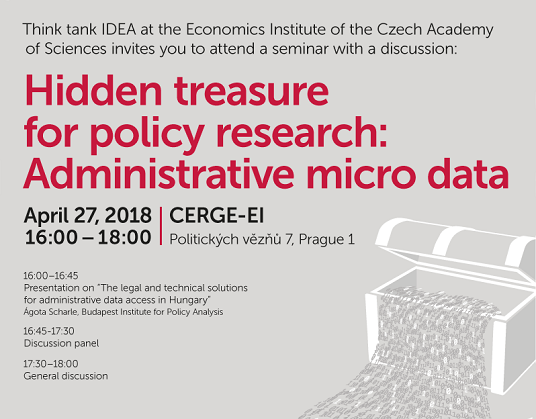Daily Events
14:00 | Micro Theory Research Seminar
Larbi Alaoui, Ph.D. (UPF Barcelona) “Know When to Fold 'Em: The Grit Factor”
Universitat Pompeu Fabra, Barcelona, Spain
Authors: Larbi Alaoui and Christian Fons-Rosen
Abstract: This paper investigates the way different sides of grit influence behavior. In addition to grit's upside in achieving economic success associated with not giving up, it might also have a downside associated with not letting go. We provide a stylized model that illustrates this potential downside. We split grit into two new categories, tenacity and diligence, and hypothesize that tenacity can lead individuals to go beyond their own intended plan of action when making a loss. We test the predictions with an experiment that elicits each individual's plan of action which we compare to actual choice in a game of luck. Consistent with our priors, grittier individuals have a higher tendency to overplay, and tenacity alone captures the difficulty in respecting ex-ante preferences when this means accepting defeat. We then discuss the external validity of our findings.
Keywords: noncognitive skills; grit; tenacity; diligence
JEL codes: C91; D03; I20
Full Text: “Know When to Fold 'Em: The Grit Factor”
16:00 | Public Lecture
IDEA seminar: Hidden treasure for policy research: Administrative micro data
Institute for Democracy and Economic Analysis (IDEA) invites you to seminar "Hidden treasure for policy research: Administrative micro data", which takes place on 27 April, 2018 at 16:00 at CERGE-EI (Politických vězňů 7, Prague 1).
Program:
16:15-16:45 | Presentation on “The legal and technical solutions for administrative data access in Hungary” Ágota Scharle, Budapest Institute for Policy Analysis
16:45-17:30 | Discussion panel
17:30-18:00 | General discussion
About the seminar:
The Czech Republic has a tradition of extensive data collection by the state. However, administrative micro data is seldom used to support evidence based policy. Access and merging of administrative data from different sources is not only constrained by overly restrictive legislation but also by the lack of trust between academic and government organisations as well as within the government. In Hungary, this has improved substantially since the adoption of Act 101 of 2007 that ensures access to anonymised personal data for research and policy analysis. The seminar will bring first-hand experience from the implementation and ten years of operation of this framework and provide a platform to discuss the potential of adopting similar approach in the Czech Republic. The seminar will primarily address these questions:
- Why a how do statistical offices provide access to confidential micro data?
- What are the benefits and challenges of running a safe centre for researchers?
- What data is accessible, what for and what are the main results in Hungary?
- What implications can be derived from the Hungarian experience for the Czech Republic?
- Should the micro data be accessible also for legitimate policy evaluation purposes?
Register by e-mail:










